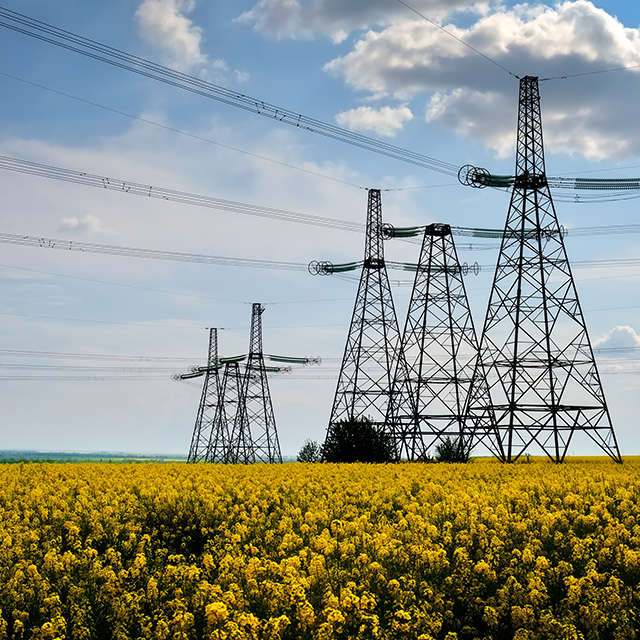The 2023 Canadian Hydrogen Convention (CHC) recently took place in Edmonton, Alberta, bringing together over 8,000 industry leaders, stakeholders and government officials from across Canada and around the world. CHC 2023 sent a loud and clear message that Canada is ready for large-scale, low-carbon hydrogen production and that the entire hydrogen value chain is ripe for investment. Recent successful pilots and rollouts demonstrate that hydrogen is ready for domestic use, but significant work lies ahead for both industry and governments to fully realize on the abundance of global export opportunities.
Here are our key takeaways on (1) why Canada's growing hydrogen economy is attracting worldwide attention and (2) investment trends happening in the hydrogen supply chain. Domestic usage, global export opportunities and regulatory and policy concerns will be covered in part two of this post conference wrap-up.
Alberta is The Place for Low-Carbon Hydrogen Production
Two-thirds of Canada's hydrogen is produced in Alberta, and that percentage is expected to grow as more global-scale projects like ATCO-Suncor's 300,000 ton-per-year Clean Hydrogen Production Facility or Air Product's $1.6-billion net-zero hydrogen energy complex continue to be announced and developed in the province. The following key factors make Alberta the ideal location for low-cost, low-carbon hydrogen production.
1. An Abundant and Inexpensive Supply of Natural Gas
This translates into a serious cost advantage for hydrogen production via steam methane reforming—the most common and economical way to produce hydrogen.
2. Unique Geology, Innovative Technology and Robust Infrastructure for Carbon Capture
Alberta is one of the few places in the world with ideal geology for Carbon Capture, Utilization and Storage (CCUS)—rock formations have securely stored oil and gas for millions of years, and have the potential to safely store CO2 permanently. Combine this with some of the largest CCUS facilities in the world, the world's largest CO2 pipeline, and decades of technical and engineering expertise related to carbon capture, and it is no wonder clean, low-carbon hydrogen can be produced at scale, and at a fraction of the cost, right here in Alberta
3. World-Leading Hydrogen Hub Development
Alberta is home to the Edmonton Region Hydrogen Hub—the first and largest in Canada—with development on other hubs in hydrogen hotbeds like Calgary and southeast Alberta already under underway or under consideration. Hydrogen hubs accelerate the development of regional hydrogen economies by linking hydrogen producers with transportation, storage, and end-use projects. They also provide a blueprint for a national hydrogen framework, and encourage collaboration amongst partners that all benefit from scaling to sufficient levels of hydrogen supply and demand.
4. Incentive Programs and Funding Across all Levels of Government
The Alberta Petrochemicals Incentive Program provides capital investment grants of up to 12 percent for hydrogen production projects, and Alberta's innovation agencies like Emissions Reduction Alberta and Alberta Innovates have already provided over $92 million in funding for hydrogen projects. The recently announced Hydrogen Centre of Excellence (supported by Alberta Innovates) awarded $20 million in first-round funding to 18 successful hydrogen projects. Federal CCUS tax credits exist up to 60 percent for investments into equipment for carbon capture, and further Canadian tax credits for clean technology investments and clean hydrogen investments were announced in the Government of Canada's 2022 Fall Economic Statement. Alberta municipalities are even putting skin in the game, with initiatives like the AIHA Heartland Incentive Program offering incentives valued between 1.0-2.5 percent of eligible project's total capital cost, and areas like Alberta's Industrial Heartland Designated Industrial Zone benefitting from streamlined regulatory frameworks.
Investment Trends Across the Hydrogen Supply Chain
With a worldwide market estimated to be worth $2.5 trillion by 2050, it should come as no surprise that hydrogen technology, projects, and infrastructure are all attracting the attention of investors—both within Canada and beyond, and across public and private sectors. Below are 5 hydrogen investment trends identified at the CHC.
1. Early-Stage Investment into Clean-Tech Development will Continue
Experts see no signs of investment into early-stage hydrogen-focused technologies slowing. The private sector and venture capital firms will likely continue to provide the bulk of investment into this portion of the hydrogen value chain, with innovation agencies like Emissions Reduction Alberta and Alberta Innovates adding an additional influx of public dollars to early-stage technologies and projects.
2. Investment into Hydrogen Hub Development will Proceed
To encourage and strengthen growing hydrogen economies, hydrogen hubs are also likely to see continued investment from both the public and private sectors. Industry partners see hydrogen hubs as opportunities to get involved in, and capitalize on, growing hydrogen ecosystems, while other entities like government funding agencies and economic development organizations will continue to commit to investment in hydrogen hubs as they strive towards net-zero goals.
3. Substantial Investment into Large-Scale Hydrogen Production and CCUS Projects Will Continue
Hydrogen production projects are likely to be the biggest drivers of growth for Canada's hydrogen economy, so it should come as no surprise that substantial investment into large-scale hydrogen and CCUS projects will continue. Major players in the energy sector will seek substantive, typically debt-based, investments into large-scale capital projects that produce industrial quantities of clean hydrogen, and capture the carbon associated with production. A specific theme explored at CHC 2023 in this regard was that such investment is, at least in the short term, likely to involve a mix of both new infrastructure and the repurposing of existing assets.
4. Indigenous Participation and Ownership
Across the hydrogen value chain, Indigenous participation in, and ownership of, projects will become more and more prominent. As industry and government leaders continue to recognize broad-based economic, ESG and other values in connection with pursuing meaningful Indigenous equity partnerships in energy infrastructure, the role of Indigenous stakeholders as key players in hydrogen-related projects and investments will grow exponentially.
5. Investment Risks and Challenges
A few of the common concerns mentioned at the CHC related to investments into the hydrogen economy were:
- cost and technical barriers to cracking required in connection with using ammonia as a carrier;
- long term availability of water as a critical supply input;
- tracking of different hydrogen-gas blends from different entry points on larger gas distribution systems;
- adapting existing safety and environmental management systems to novel challenges in hydrogen production, CCUS and transport projects; and
- convoluted regulatory and policy-related frameworks that negatively impact new project development, completion timelines, and budgets (to be covered in more detail in part 2 of our CHC wrap-up to follow).
For questions regarding the emerging hydrogen economy, please contact one of the authors or a member of Bennett Jones Energy or Energy Regulatory groups.






















